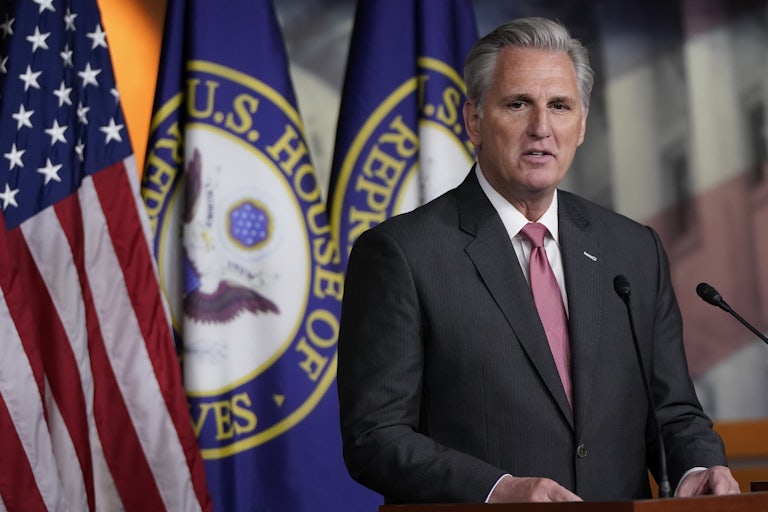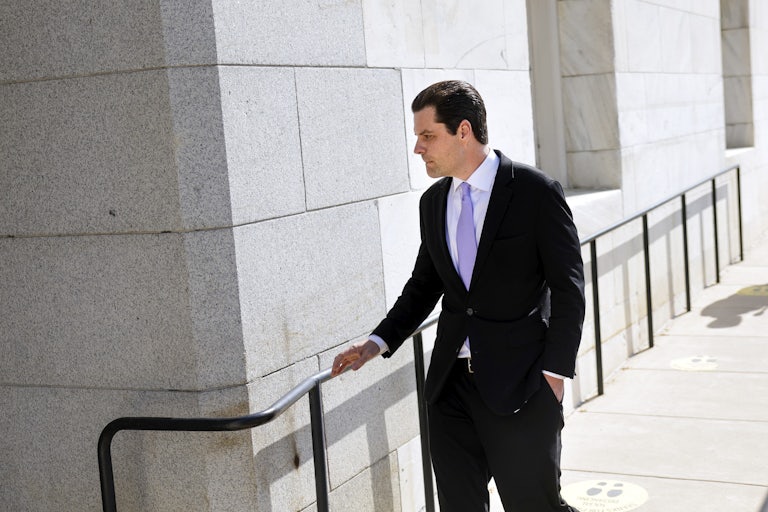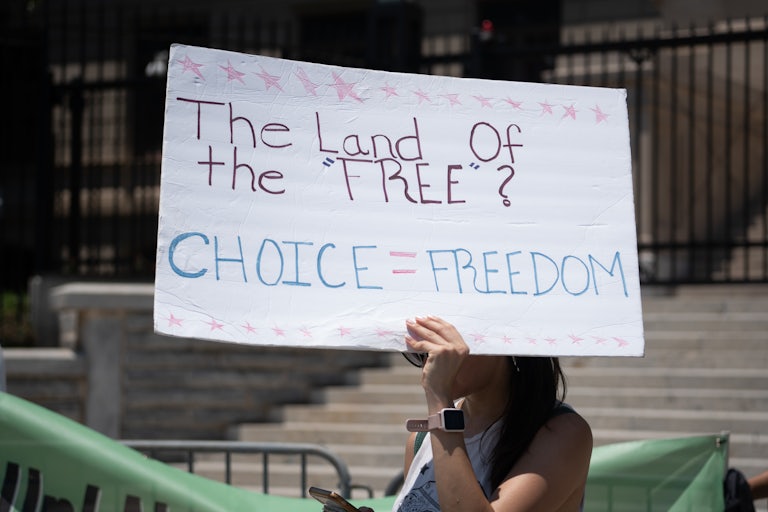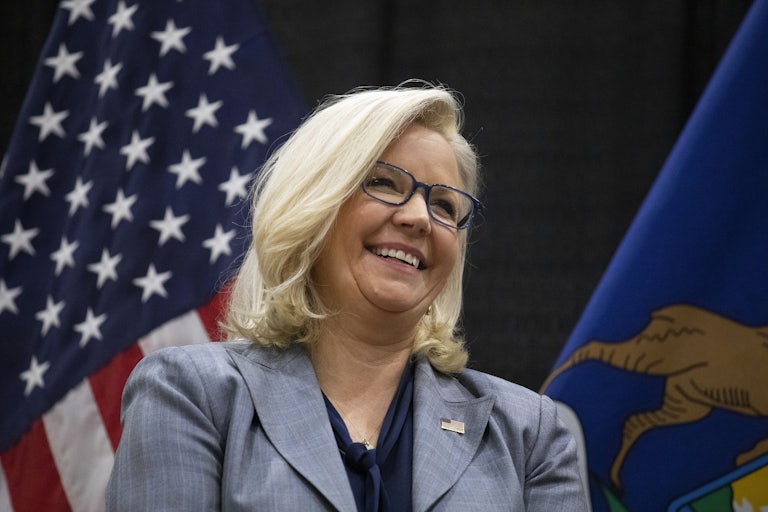Tom Emmer Wins the Thankless Task of Corralling the GOP’s Likely Narrow House Majority
Meet the Minnesota Republican who led the party’s midterm campaigns.
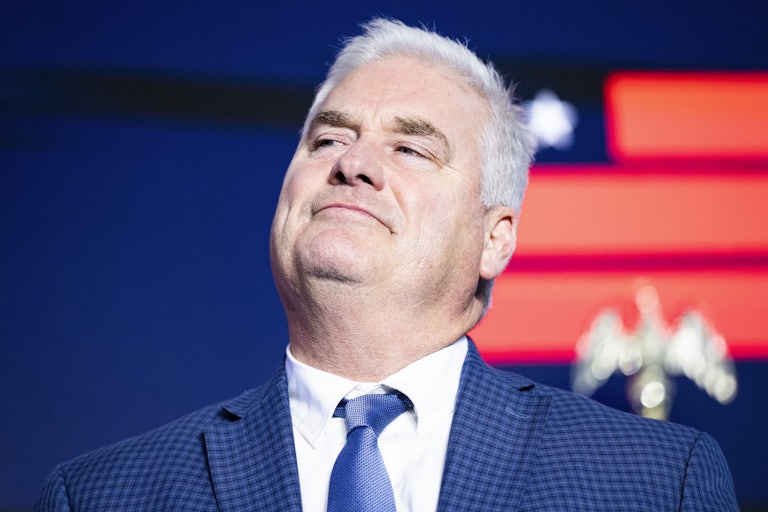
When I profiled Representative Tom Emmer for The New Republic’s summer issue previewing the midterms, the Minnesota Republican seemed to be on a gilded path toward rising through his party’s ranks and wielding the power he’s long sought in Washington. As the chair of the National Republican Campaign Committee, Emmer was expected to oversee a “red wave” surge that would produce a massive GOP House majority, collecting IOUs and plaudits from new members along the way. Instead, Republicans still don’t control the Senate, and the House has yet to be called a week after the midterms, with an exceedingly narrow GOP majority.
As a result, instead of a smooth ride up the ranks, Emmer only narrowly bested Indiana Representative Jim Banks 115–106 on Tuesday to become the GOP Whip.
The whip, the third-ranking spot in House leadership, is primarily tasked with keeping party members in line and corralling votes on tough bills. Thanks to the probable narrow majority, which means that just a few stray defections from the likes of Matt Gaetz and Majorie Taylor Greene could tank the party’s aspirations, that job could end up being more of a nightmare for the next two years.
I wrote about Emmer over the summer since I’ve covered his political aspirations off and on for over a decade now. Back in 2010, Emmer was Minnesota’s Republican nominee for governor. He became known nationally as one of the ur–Tea Party candidates defining the backlash to Barack Obama’s presidency and to the RINOs who had long been the face of the GOP. As I wrote then of Emmer’s time ahead of his gubernatorial run:
He “embodied a lot of the positive attributes of Trump before Trump was cool,” said Marty Seifert, the former Republican minority leader when Emmer was in the state legislature. “Outspoken, tell it like it is. Some people may not like you because of what you say, but I’m going to say it anyway.” …
His tenure was defined by pushing far-right policy: proposals that Minnesota should chemically castrate sex offenders, impose strict voter ID laws, and outlaw abortion in all instances (as well as proposals that would also potentially outlaw certain forms of contraception and in vitro fertilization). He questioned evolution and was one of the loudest, most influential opponents of same-sex marriage. And despite two earlier DUI infractions, Emmer put forth bills to lessen penalties for drunk driving, which became fodder for opponents in later political campaigns.
Another of Emmer’s obsessions was pushing cockamamie ways that Minnesota could nullify federal laws. He was one of three co-authors of a 2010 proposal for a state constitutional amendment that would have required the governor and a two-thirds vote by legislators to approve a federal law before it could be enforced in Minnesota.
But unlike other Tea Partiers who rode the backlash against Democrats to great success in 2010, Emmer lost his campaign. He slunk away for a few years—serving time working for anti-gay-marriage groups and as a morning radio shock jock—before Michele Bachmann retired from her deep-red seat and Emmer took her place. As I wrote for Mother Jones back in 2014, Emmer had “closely replicated the Bachmann model” and was the heir apparent to carry on her pugilistic style of politics in Washington. But when he came to the Capitol, he largely receded from the limelight, sticking to his conservative views but focusing on rising through the ranks behind the scenes, eventually chairing the NRCC in 2020—when Republicans actually won more seats than Democrats despite Donald Trump losing to Joe Biden—and repeating that role in the promising 2022 cycle. “When [he was] first elected to the Minnesota House, compromise was probably not part of his M.O.,” former Minnesota House Speaker Steve Sviggum told me. “I think today there’s much more awareness of cooperation and compromise, while still having extremely conservative values.”
But between the surprising outcome of the midterms and that sense of seeking compromise, Emmer almost lost his leadership role. He reportedly earned the ire of Donald Trump and Tucker Carlson, and The National Review wrote a scathing article denouncing his whip bid this week, arguing, “He deserves the lion’s share of the blame for the GOP’s dismal showing in the House.” Still, he held on, but trying to convince an unruly cohort of extremists that he helped secure reelection will be no easy task in the months ahead.
To learn more about who Emmer is—from how he peddled election denial ahead of January 6 to his time as a “hothead” in the Minnesota state legislature—read the full profile here.
